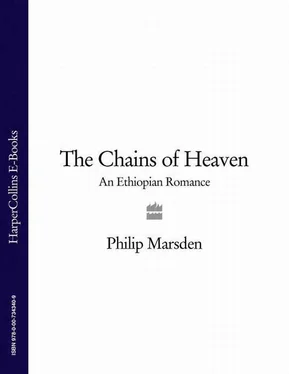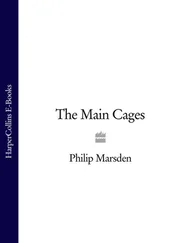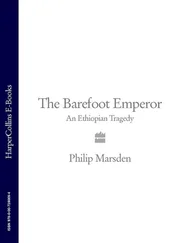Dejazmach Zewde was a charming, egg-shaped man with a marcel wave in his hair and a patrician manner. He had spent years as an academic in Oxford—‘I think my happiest years’—but a few months before the revolution, Haile Selassie had called him back to be Minister of the Interior.
‘It was my job to deal with the Derg. At that time I have to say they were really pretty amateurish. Used to park a tank outside the ministry for meetings, that sort of thing. Once they came to me and demanded the release of political prisoners. I said to them, Do you mean a complete amnesty, or some sort of selective policy? And they said, We don’t know.’ The dejazmach laughed. ‘They didn’t know! Well, come back when you do, I told them, and they just sat there. Well? I said. We can’t go back to barracks empty-handed. So I decided to call their bluff. Why not demand constitutional reform? Two weeks later they came back and said, We demand constitutional reform! So we appointed another committee to look at reform. Thought it might check the Derg’s power. Trouble is, the Derg started to arrest that committee.’
‘Did you know Mengistu?’
He nodded. ‘First time I met Mengistu was at a big meeting I called with the Derg. He was just a low officer then. Fifty members came and the senior ones were sitting and the rest were standing. One of those standing held up his hand. Minister, please, what do you think of socialism? he says. Well, I told him, there are different shades of socialism. In England there is Fabian socialism and then you have Swedish-style socialism and at the other end Albanian socialism. So if you mean policies aimed at achieving equality, I would say yes—but in general I am not for socialism.’
‘And that was Mengistu?’
‘That was him, yes.’
‘So what about the emperor?’ I asked. ‘Did you admire him?’
The dejazmach did not answer at once. He gazed up at the ceiling with such trance-like neutrality that I thought he hadn’t heard.
‘Earlier on, he was an astonishing figure. Decisive, effective, punctual. His greatest weakness was that he could not share power. I think that was it…Yet right at the end he had an amazing calm. Everyone else was nervous and jumpy, but he was calm. Just before he fell, I went to see him. The Derg were pretty much in control by then. They’d shown the Jonathan Dimbleby film exposing the famine, and said on television that no one should go to the palace, none of the workers or retainers. I was really very upset by the film—on the emperor’s behalf. So I went to see him. He was alone. The palace was completely empty. Just the two of us. He wanted to talk about foreign matters. I had just been in Iran and he said: So tell me, how is the shah? Two days later they took him away. They asked me to be foreign minister. I still thought it would all turn out all right, so I accepted. But then came Black Saturday.’
‘What was that?’
‘Hauled sixty of those out of the cellar beneath the throne room and shot them. I was in New York when I heard. Resigned at once.’
Two days later, through a coffee merchant, I was introduced to the emperor’s grandson. Prince Ba’eda Maryam Makonnen had a business importing coffee machines. He was an ordinary looking Ethiopian in a zip-up cardigan—but on his index finger he wore a signet ring with a gold relief of a lion and staff, the Conquering Lion of the King of Judah.
Ba’eda was the son of Haile Selassie’s favourite child, the Duke of Harar, who had been killed in a car crash when Ba’eda was only fourteen days old. With his brothers and sisters he had then gone to live with his grandfather in the Jubilee Palace. Later he was one of those imprisoned in the Ghibbi, the Grand Palace.
‘When we were in prison Mengistu came to see us. He was always very polite. He called my grandfather Getay—master—and always made sure to salute him.’
In the end Ba’eda was moved to the cellar beneath the throne room. He passed me on to another of its inmates. I went to see Teshome Gabre-Maryam on a warm, sunny afternoon. He had served in the emperor’s government and was now a prosperous lawyer. He worked in an office in the leafy compound of his home. When I arrived he was with another man, General Negussie Wolde-Mikhael.
Thirty years of power shifts had seesawed the lives of these two men. They had both begun their careers under the emperor. They were both high-fliers: Teshome had helped draft the constitution, General Negussie was chief of police in Addis. But when the Derg came, it had imprisoned one and promoted the other. While Teshome counted off the months and years in the palace cellar, General Negussie was made Chief Justice of the Martial Court.
‘One day, they took me for trial,’ explained Teshome. He reached out and, with a smile, took the general’s hand. ‘Who was there presiding in the court?’ He raised the general’s hand. ‘He could have had me executed!’
‘Why did you let him off?’ I asked, smiling.
The general glanced at Teshome. ‘He was a lawyer. He stood up in the court and convinced me.’
‘That he was innocent?’
‘No—that the court had no validity.’
Teshome laughed. He was still holding the general’s hand.
Teshome was released, and when the Derg fell General Negussie himself was imprisoned. He had only just been released. Now Teshome was helping him; he had given him a car.
‘Did you approve of the Derg?’ I turned to General Negussie.
‘To begin with, I was very happy with the ideology. We really believed it would help Ethiopia. But for me it changed completely when they executed my uncle. I was so filled with anger—I wanted to kill every one of those Derg men. My colleagues suggested I apply for a transfer. They probably saved my life. For six and a half years I was administrator of Hararge region. Then in 1982 the Derg asked me to become a minister—Minister without Portfolio.’
‘Did you accept?’
He shrugged. ‘I had ten children.’
‘What do you remember of Mengistu?’
‘Very moody. Very violent. My office was just above his and I could always hear his shouting. The only quality I know he had was that he loved his country. Also he was not corrupted at all. He was very honest with money. And he was very good at listening. He always knew exactly what the important point was.’
‘Did you admire him?’
He looked at me. Prison had greyed his hair; his face was soft and troubled. ‘Every day I was with Mengistu, I was thinking: how can I kill this man? We were always searched before going to our office. But when I was alone with him I would watch him and think how could I do it—he was a small one and I am a judo expert. I travelled with him to different provinces and I sat behind him on the plane looking at the back of his head and he had one little scar just here—’ the general leaned forward and tapped the top of his neck ‘- and I was thinking, that would be the place, that would do it. A bullet just there…’
General Negussie stood and said goodbye. He walked stiffly to the door. For a moment after he had gone, Teshome and I were silent. A yellow weaver bird was pecking at the windowpane— tap-tap…tap-tap - tap.
Teshome and I carried on talking. I told him about my first trip to Lake Tana, about Wonderland Tours and Teklu and Dr Mengesha.
‘Mengesha Gabre-Hiwot?’
‘Yes.’
‘I was brought up with him! We were classmates at Tafari Makonnen school. He helped me. He gave me money when I came out of prison in September 1982.’
‘That was a few weeks after I was here.’
The weaver bird was again tapping at the window— sparring with an aggressor that matched him blow for blow.
Teshome pursed his lips and let out a long, frustrated ’ Dhaaaaa …’ for all the shattered years, the Derg’s brutalities, the squandered hopes of his own generation.
Читать дальше











